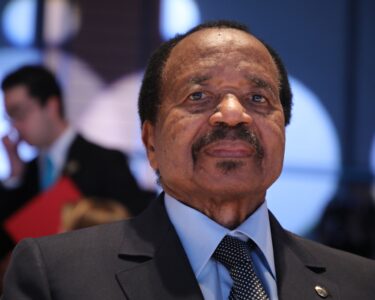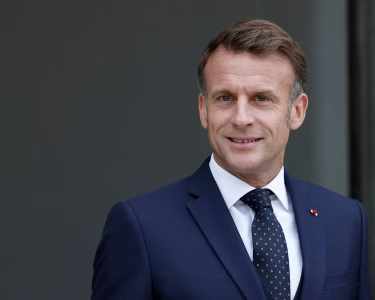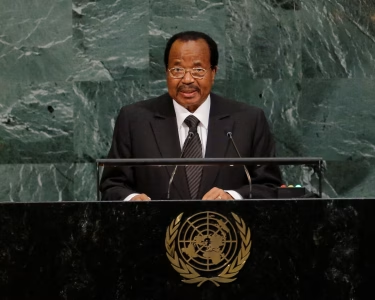Summary
- Pro-Western incumbent wins second term in runoff election
- Overseas voters played a crucial role in the outcome
- Election was overshadowed by interfering allegations
- Maia Sandu sets her sights on next summer’s parliamentary elections
CHISINAU, Moldova – Maia Sandu, Moldova’s pro-Western incumbent president, claimed victory in Sunday’s closely contested presidential election, defeating her rival Alexandr Stoianoglo, who was backed by the traditionally pro-Russian Socialist Party.
With 98% of the ballots counted, Sandu led Stoianoglo with 54.35%, the Central Election Commission said at the end of an election and campaign that were marred by persistent allegations of interference denied by Russia. The victory for the 52-year-old ex-World Bank adviser, who has accelerated the nation’s push to leave Moscow’s orbit and join the European Union, is seen by her supporters as an endorsement of the resolutely pro-Western course she has tacked.
However, Stoianoglo’s dominance across swathes of the country suggests that Sandu’s party will face a tough challenge in the key parliamentary elections scheduled for next summer, which will determine the composition of the government. Although Stoianoglo campaigned on a platform supporting EU integration, he also expressed a desire to strengthen ties with Russia in the national interest. Sandu accused him of being a Trojan horse for Kremlin interests, a claim that Stoianoglo denied.
 Moldova’s incumbent President and presidential candidate Maia Sandu reacts to the preliminary results of the second round of the presidential election, at her campaign headquarters in Chisinau, Moldova November 3, 2024.
Moldova’s incumbent President and presidential candidate Maia Sandu reacts to the preliminary results of the second round of the presidential election, at her campaign headquarters in Chisinau, Moldova November 3, 2024.
Moldova, a poor agricultural nation that has alternated between pro-Russian and pro-Western courses since the Soviet breakup in 1991, has garnered international attention since Russia began its full-scale invasion of neighboring Ukraine in 2022. The election was closely monitored in Brussels, particularly after Georgia, another ex-Soviet state seeking EU membership, re-elected a ruling party regarded in the West as increasingly pro-Russian.
“Moldova, you are victorious! … In our choice for a dignified future, no one lost,” Sandu said in a conciliatory victory speech, in which she said she had to address the concerns of those who voted against her. “I have heard your voice – both those who supported me and those who voted for Mr. Stoianoglo. I commit to being the president for all of you,” she said.
The vote marked the largest number of expatriate voters to take part in a Moldovan election since 2010 when the diaspora was first allowed to vote. Inside Moldova’s borders, the results showed Sandu actually lost the election to Stoianoglo by a small margin of 48.8% versus his 51.2%. By contrast, she looked on course to win more than 80% of the diaspora vote, which was still being counted.
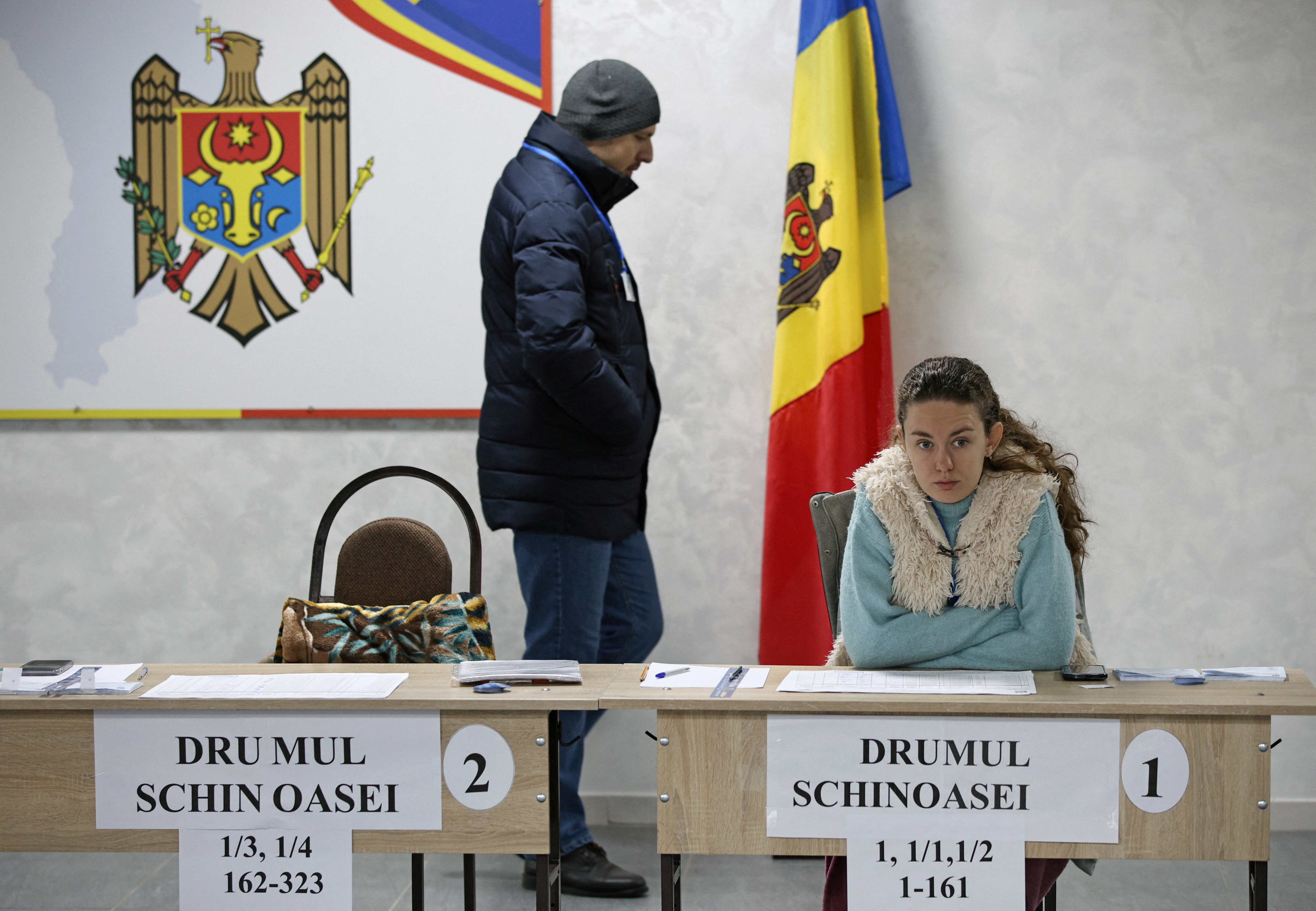 An election official waits for voters at a polling station during the second round of the presidential election in Chisinau, Moldova November 3, 2024. REUTERS/Vladislav Culiomza.
An election official waits for voters at a polling station during the second round of the presidential election in Chisinau, Moldova November 3, 2024. REUTERS/Vladislav Culiomza.
ELECTION MEDDLING CLAIMS
On Sunday, Stanislav Secrieru, Sandu’s national security adviser, accused Russia of massive interference in Moldova’s electoral process, the latest in a series of allegations also levelled at fugitive oligarch Ilan Shor, who lives in Russia and denies any wrongdoing.
“We’re seeing massive interference by Russia in our electoral process … an effort with high potential to distort the outcome,” Secrieru wrote on X on Sunday.
There was no immediate comment from Moscow, which has repeatedly denied allegations of meddling. Secrieru cited reports of voters being taken to polling stations, cyberattacks and bomb hoaxes reported at overseas polling stations in Europe.
Police efforts were intensified to prevent a recurrence of what they described as a vast vote-buying scheme deployed by Shor in the first round of voting, which coincided with a referendum on EU aspirations. Sandu alleged that this meddling affected the first round on October 20, and that Shor attempted to buy the votes of 300,000 people, more than 10% of the population. The referendum delivered a slender win for the pro-EU camp, with 50.35% of the vote.
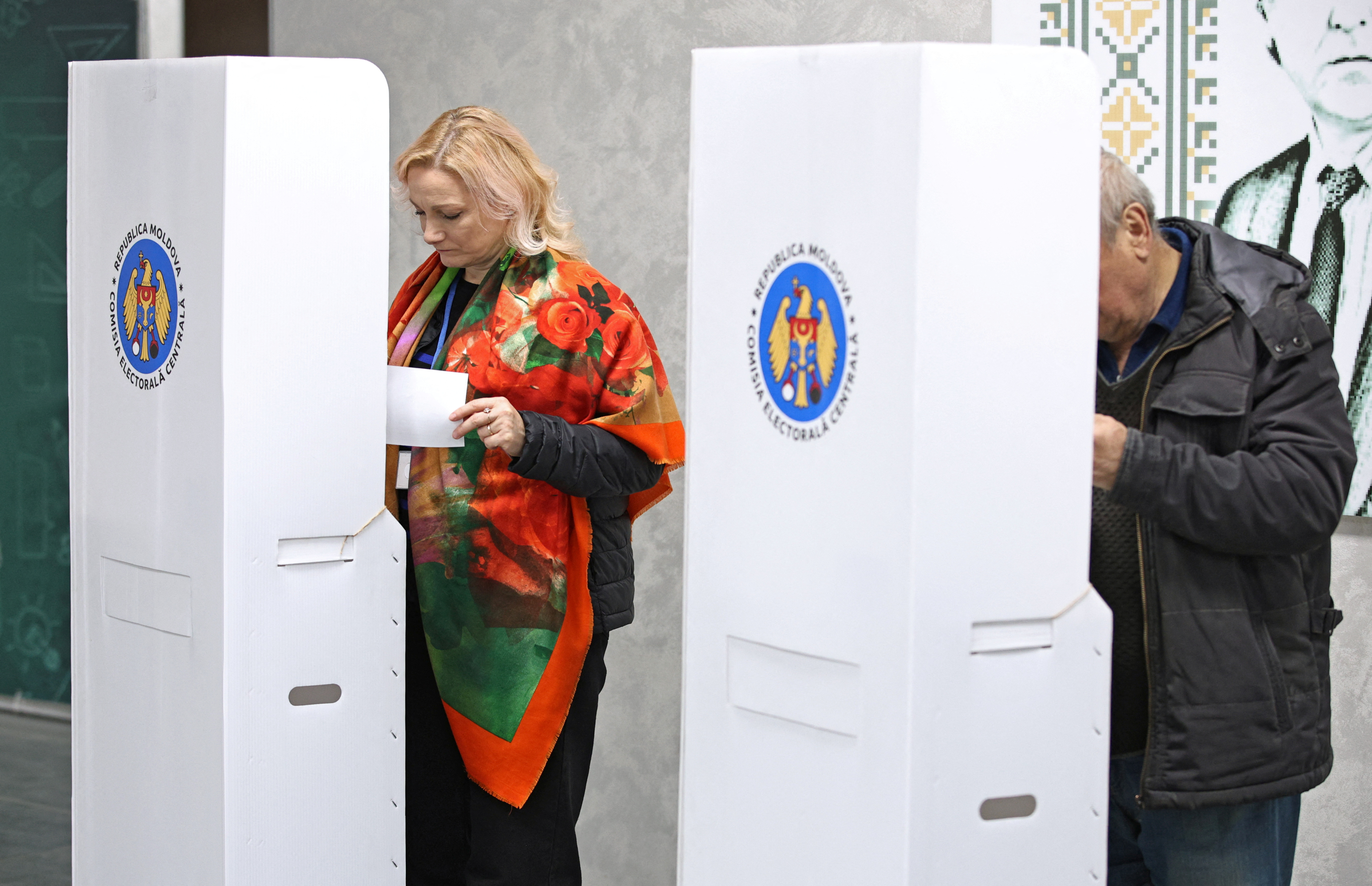 People vote at a polling station during the second round of the presidential election in Chisinau, Moldova November 3, 2024. REUTERS/Vladislav Culiomza.
People vote at a polling station during the second round of the presidential election in Chisinau, Moldova November 3, 2024. REUTERS/Vladislav Culiomza.
Stoianoglo’s rhetoric of balancing East and West stood in stark contrast to Sandu’s four years in office, during which relations with the Kremlin deteriorated, leading to the expulsion of Russian diplomats and Sandu’s condemnation of Russia’s invasion of Ukraine. Moscow has labeled her government as “Russophobic.”
Sandu painted Sunday’s vote as a choice between a bright future in the EU by 2030 or one of uncertainty and instability. Stoianoglo said that was untrue and that Sandu had failed to look out for the interests of ordinary Moldovans. He accused her of divisive politics in a country that has a Romanian-speaking majority and large Russian-speaking minority.
Stoianoglo benefited from protest votes against Sandu’s handling of the economy. Moldova struggled with the aftermath of the COVID pandemic and the effects of Russia’s Ukraine invasion, which sparked a huge influx of refugees and sharply reduced Russian gas supplies, causing high inflation.


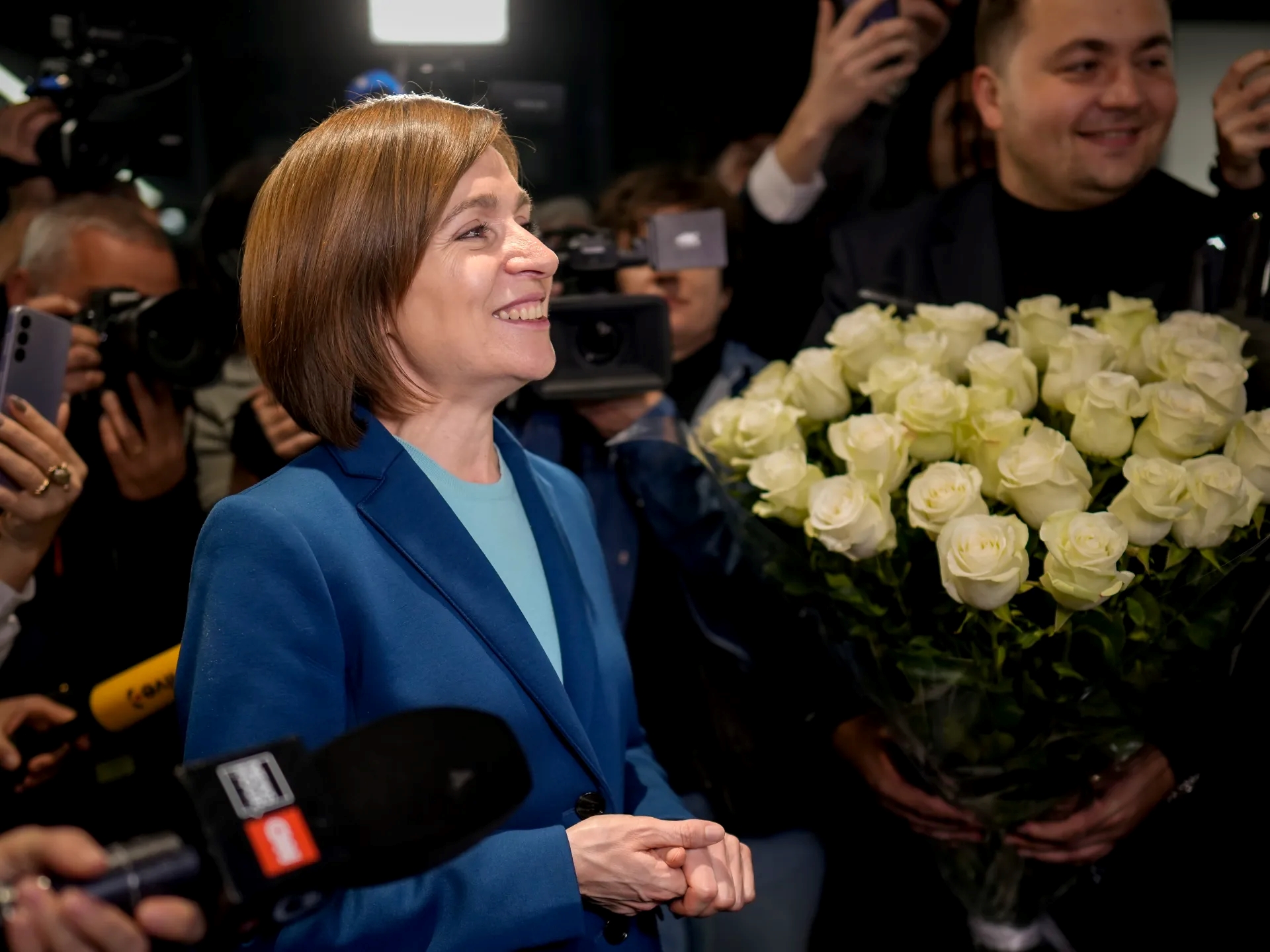

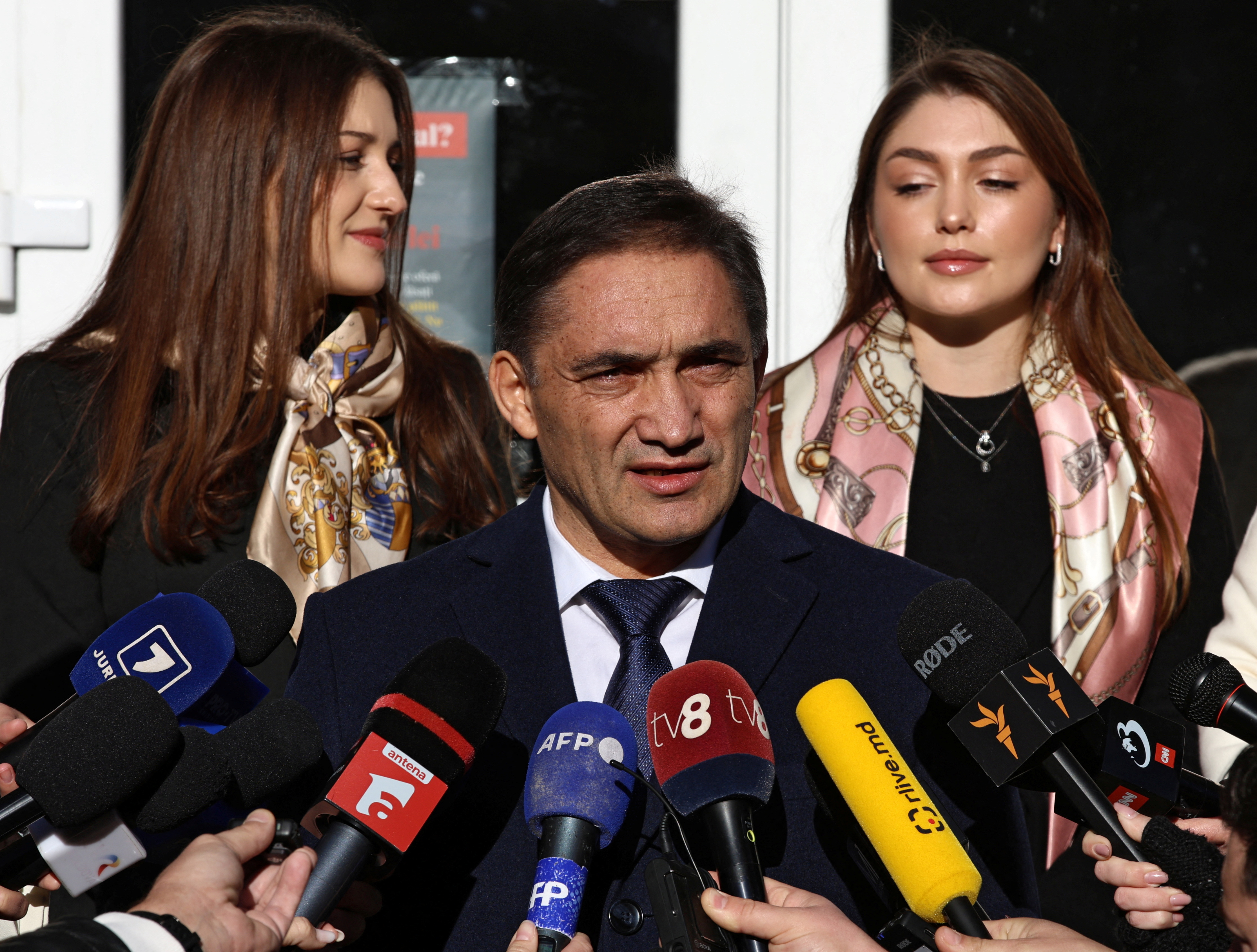 Alexandr Stoianoglo and daughters Cristina and Corina, Chisinau, November 3, 2024. REUTERS/Vladislav Culiomza.
Alexandr Stoianoglo and daughters Cristina and Corina, Chisinau, November 3, 2024. REUTERS/Vladislav Culiomza.
